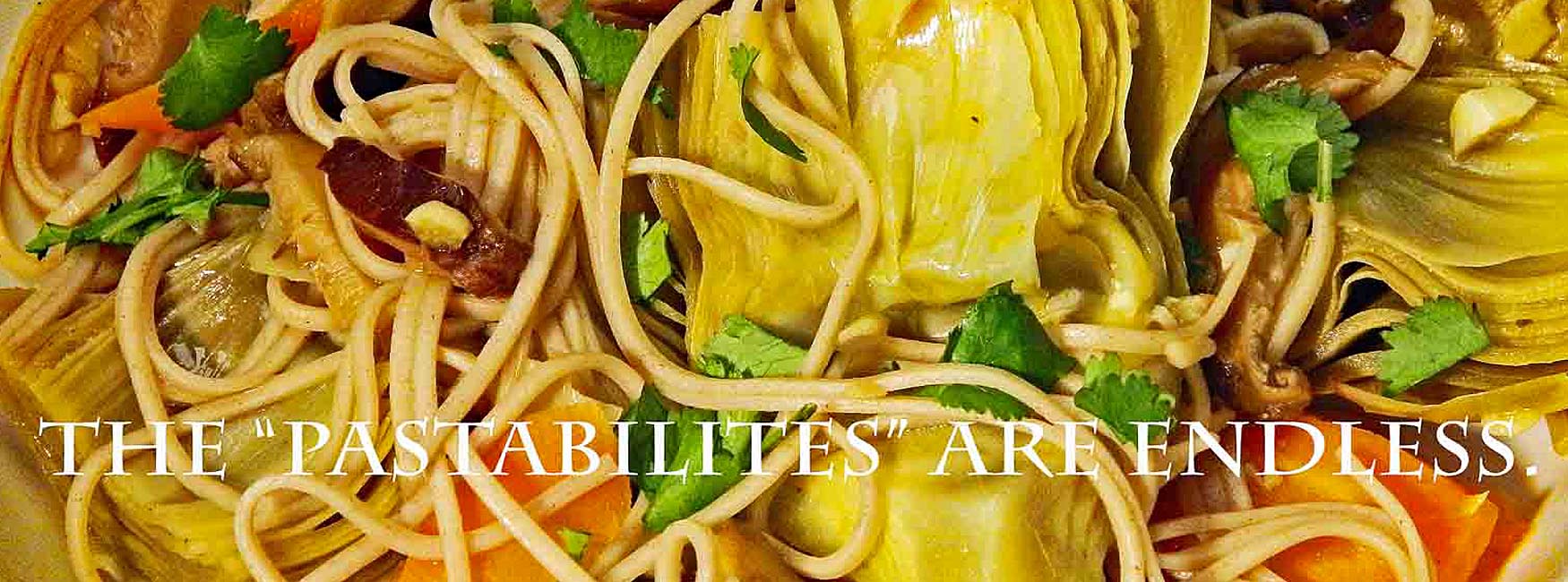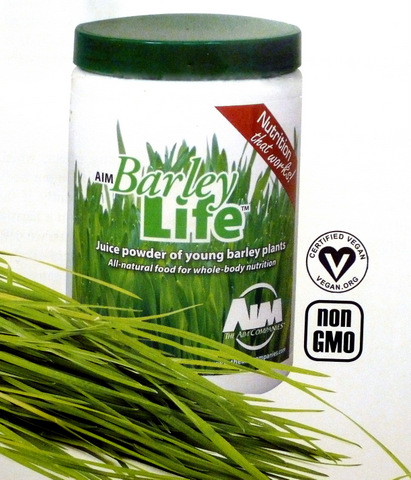Healthy Food Choices Can Change Your Life!
Healthy food choices are a difficult task in this world we live in today. The good news is many Americans are searching more each year to find how to make themselves and their family healthier.
Americans are bombarded with ads for fast foods that compromise our long term health. Grocery stores are filled with processed foods that have low nutrient value and are high in calories. This leaves the body starving for more nutrients.
Food Like Things!
Just think of this...in many cases man has concocted his own formula to make "food like things" that have little if any nutritional value. Making healthy choices does not include food like things.
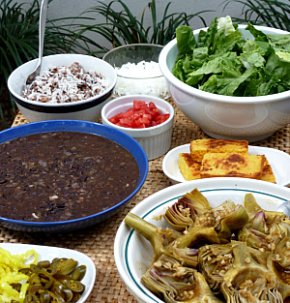 This is a delicious meal of plant based foods.
This is a delicious meal of plant based foods.Healthy food choices are going to be whole foods.
What are whole foods? They are foods such as sweet potatoes, white potatoes, rice, beans, corn, green, red, yellow and orange vegetables, whole grains, nuts and fruits...not man made food that is made up of bits and pieces of processed foods and chemical additives.
The food industry is in a constant battle with competing studies of the latest food ingredient discoveries. One day a particular vitamin is the answer to good health, the next day competing interests come out with their study to refute the original findings.
What is really interesting is to see who funded these studies. As a result, the public stays confused and unable to find the truth.
It is natural for industries to promote and protect their products, however, the public is not being told the truth in many cases. The advertising campaigns to promote a food product make it difficult for the average person to know which ones are really healthy food choices. The result is the country is becoming sicker than any time in history from eating the government sanctioned Standard American Diet (SAD).
We can do better!
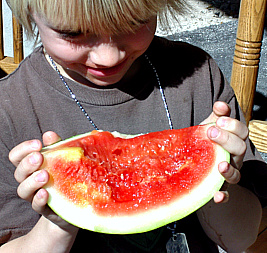 This is Landry, our grandson
This is Landry, our grandsonWe can learn to make healthy food choices. Animal products, if you have to eat them, should be less than 10% of your daily calorie intake. "The China Study" by T. Colin Campbell, PhD, has shown us that when animal products are the major portions of our diet, the chronic diseases of Western Civilization start showing up as we age. With this consumption of animal protein we get an excess of fats which include the heart stopping saturated fat.
Along with this exposure to animal products, we get growth hormones, cholesterol, antibiotics, and many animal associated diseases that are a part of the processed food that we consume today. Ask yourself...does this sound like the path to making healthy food choices?
What is so great about plant food?
Plant foods are your best healthy food choices. They simply do not add cholesterol, antibiotics, hormones, or animal transmitted diseases. These are just some of the reasons why plants can save or restore your health.
A Guide to Making Healthy Food Choices
Jeffrey N. Novick, M.S., R.D., L.D., L.N.
Jeff has studied plant-based nutrition for many years and has been influential in establishing standards that give valuable information for all of us that are implementing a whole food diet plan and making healthy food choices.
The ground rules are directed toward packaged food, but can be used in evaluating any processed or restaurant foods.
The first thing to remember is that you NEVER believe anything on the face of the package. Always look to the side or back of the package for nutrition values and ingredients. Most fast food restaurants also publish this information.
Fat, Sodium, Sugar and Carbohydrates
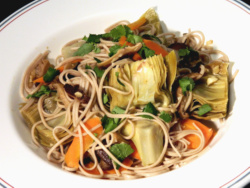 Artichoke pasta, healthy and delicious!
Artichoke pasta, healthy and delicious!Jeff has identified four items that Americans overeat: fat, sodium, sugar and carbohydrates.
How much fat do we need? The human body needs a minimum of 3 - 5% of daily calories in fat. The government, USDA and many health oriented institutes and organizations believe that 30 - 35% of calories from fat is acceptable. We know that a plant based diet such as Dr. McDougall's and Dr. Esselstyn's are in the 10 - 15% range. These diets rely on oils within the plants and they do not permit adding oil of any kind. So Jeff takes the middle of the road at 20% of your total calorie intake as the target for fat calories.
EXAMPLE: Total calories of 200 X .20 (20% fat allowance) = 40 calories allowed from fat.
Which fats are unhealthy? There is a problem with unhealthy saturated fats. If there is excessive amounts of saturated fats, you should not consider using the product, even if the proportion of fat is within the basic formula guidelines. Saturated fats are three types:
- Animal Fats - lard, butter, dairy, cheese
- Hydrogenated vegetable oils - man made margarine, shortening partially hydrogenated oils.
- Natural saturated plant oils - coconut oil, palm, oil, cocoa butter.
How much salt do we need?
It is almost impossible not to get enough salt. The body needs a minimum of 250mg daily. Just by eating plants and vegetables without adding salt, you will get 500mg or more.
The average consumption of sodium in America is 3000 - 5000mg per day. Most all of the added salt comes from processed and restaurant foods. Hardly any significant amount is added in the home kitchen or at the table.
Reducing Hypertension - When you select and prepare your own food, you can reduce the salt and help reduce hypertension. Jeff has established a 1 to 1 ratio of total calories to sodium. This is really difficult to find when eating out.
EXAMPLE: Total of 500 calories equals the allowable sodium of 500mg. A 2000 calorie diet will allow 2000mg of sodium.
What kind of sugar should we eat?
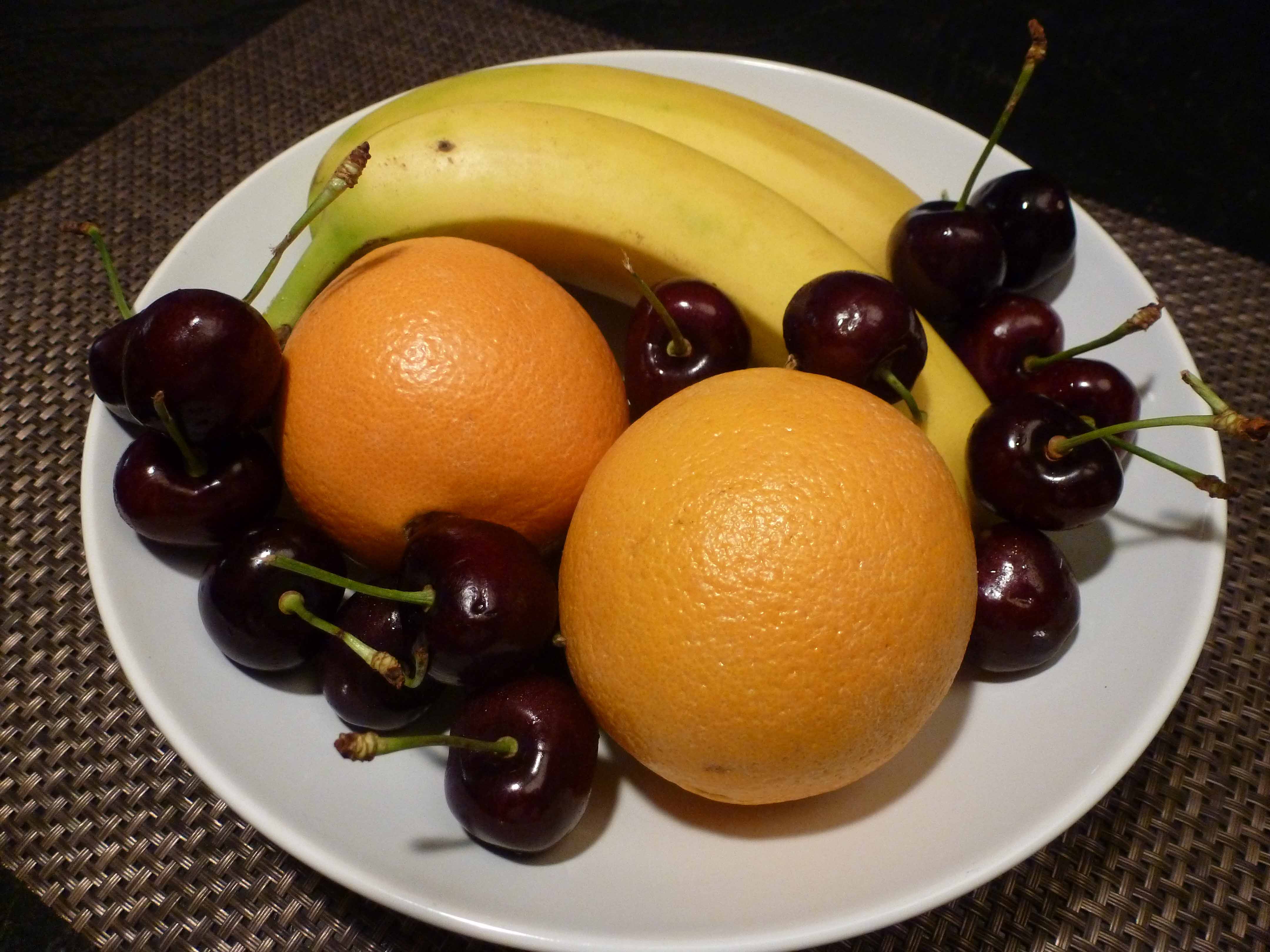 Fresh fruit is a great way to get a "sweet treat"!
Fresh fruit is a great way to get a "sweet treat"!The unrefined good sugars are found in fruit, corn, potatoes, carrots and other natural foods. These are considered healthy food choices.
The problem is added sugars. In the ingredient list, foods are ranked according to their weight from the most to the least. The key to selecting healthy food choices depends on whether sugars occur in the first three to five ingredients on the list. If they do, you should avoid the product. Beware of multiple types of sugars. Sometimes manufacturers will place multiple types of dried sugars in small amounts down the list in order to hide the fact that there are other sugars present. Be sure you look over the list.
Remember your brain needs 500 calories of sugar a day to function correctly, so don't completely avoid sugar from plant sources.
The big problem in carbohydrates today is the excessive amount of refined carbohydrates such as white flour, white rice, white pasta. The nutrients have been stripped out of them and they are loaded with calories.
Which carbohydrates are good to eat?
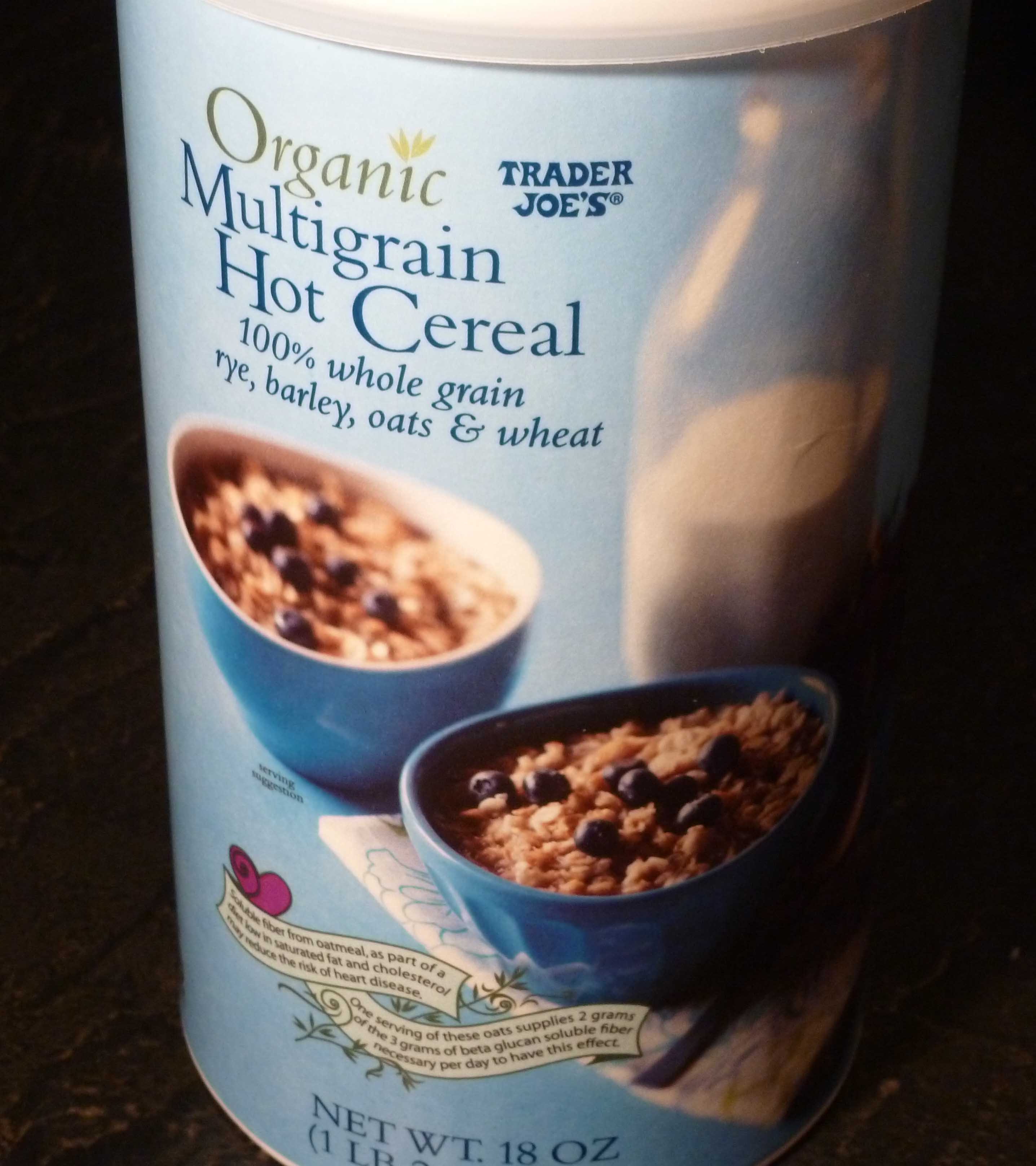 100% Whole Grain is so good for you!
100% Whole Grain is so good for you!The big problem in carbohydrates today is the excessive amount of refined carbohydrates such as white flour, white rice, white pasta. The nutrients have been stripped out of them and they are loaded with calories.
With the lack of nutrients available in refined carbohydrates, the body signals that more food is needed to satisfy the nutrient needs of the body. This leads to large amounts of calorie rich, nutrient deficient foods being eaten. This is what leads to weight gain.
The key to selecting healthy food choices is to go to the ingredient list to identify the words "WHOLE GRAIN" in order to find UNREFINED NUTRIENT DENSE PRODUCTS. Other terms like rolled oats, stone ground or cracked are still okay. If it says wheat cracker or wheat flour, it is white flour. "Whole" has to precede the ingredient.
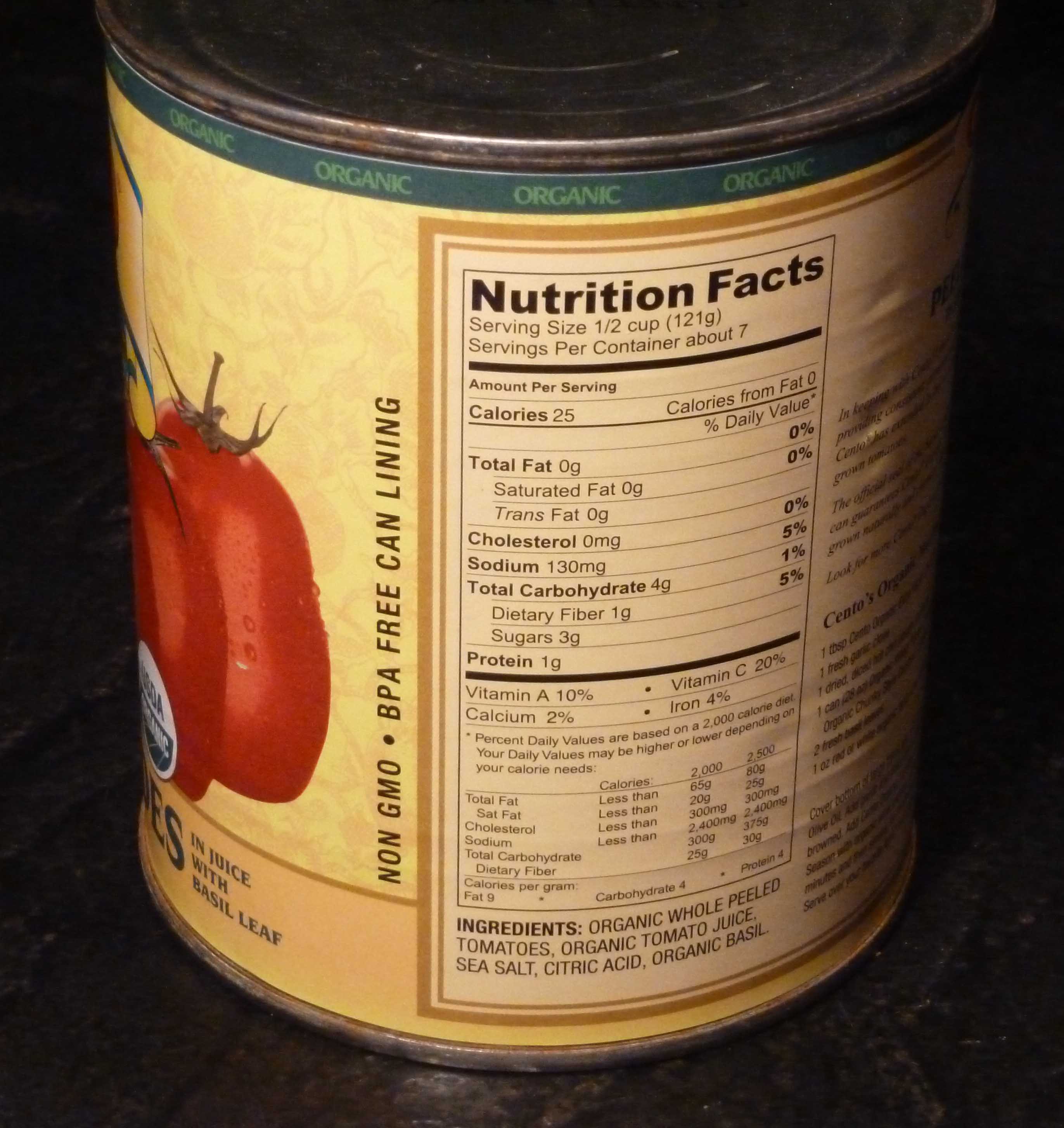 The fewer ingredients added, the healthier the food.
The fewer ingredients added, the healthier the food.It is important to read labels!
Now you have the basic ideas as to how to evaluate processed food. When making healthy choices, you should review the nutritional facts and ingredients of the processed food...make sure that you pay careful attention to the serving amount listed in the nutrient facts. If you eat more than the serving amount that is listed, you are obviously taking in additional calories.
You will find many healthy products in the marketplace and hopefully with some guidelines you will be able to make healthy food choices for you and your family.
More About Healthy Choices
- Healthy Weight Loss - On a successful and healthy weight program you do not worry about counting calories.
- Benefits of Coconut Oil - are finally being revealed in our culture.
- Good Healthy Snacks - lower in fat & sodium, and you can enjoy the snacks guilt free.
- Dried Fruit Nutrition - is abundant with antioxidants and fiber.
- Benefits of Soy Milk - The benefits of soy milk make it a very healthy substitute for cow's milk.
- Yogurt Health Benefits - have been known for ages, and may be one of the most important foods you could eat.
- Best Spice for Plant Based Meals - Cedar Key Spice adds a whole new dimension to the flavors of your meals.
- Natural Salt - is pure, unrefined authentic salt with all of the trace minerals in tact.
- Excellent Salt Substitute - One of our favorites, Bragg Liquid Aminos!
- Stevia Sweetener - The uniqueness of stevia sweetener is that it is 150 times sweeter than sugar and has basically no calories.
- Cruciferous Vegetables - are known to reduce the risk of getting cancer.
- Vitamin B 12 - is needed for red blood cell formation, DNA processing and brain function.
- Processed Foods - also known as "convenience foods", make up over 60% of our food consumption in America today. These foods are loaded with chemicals and are very unhealthy.
